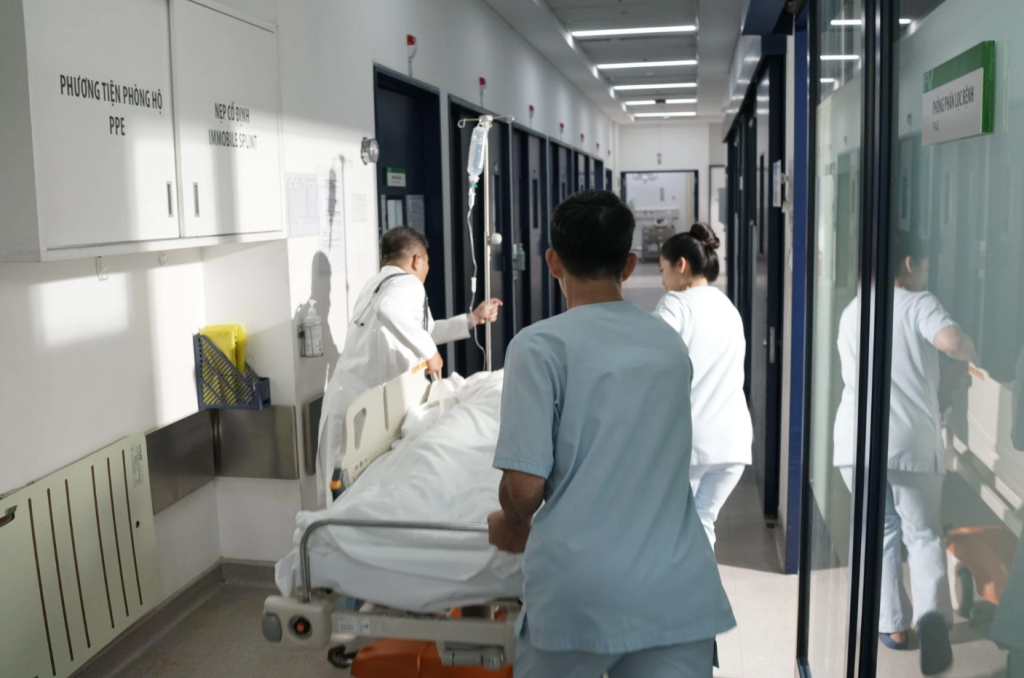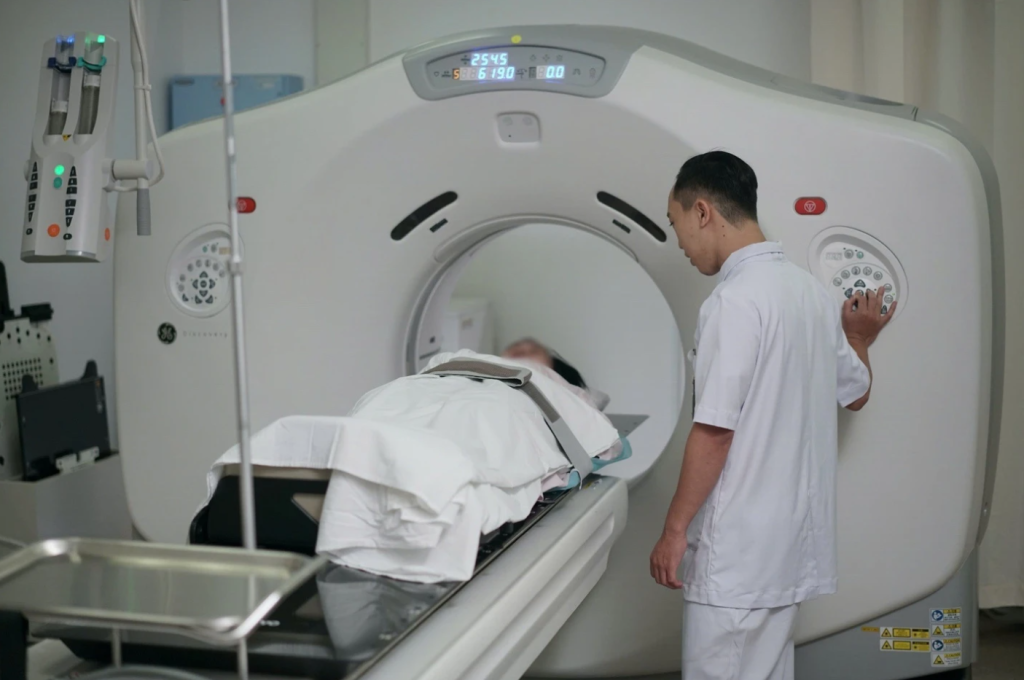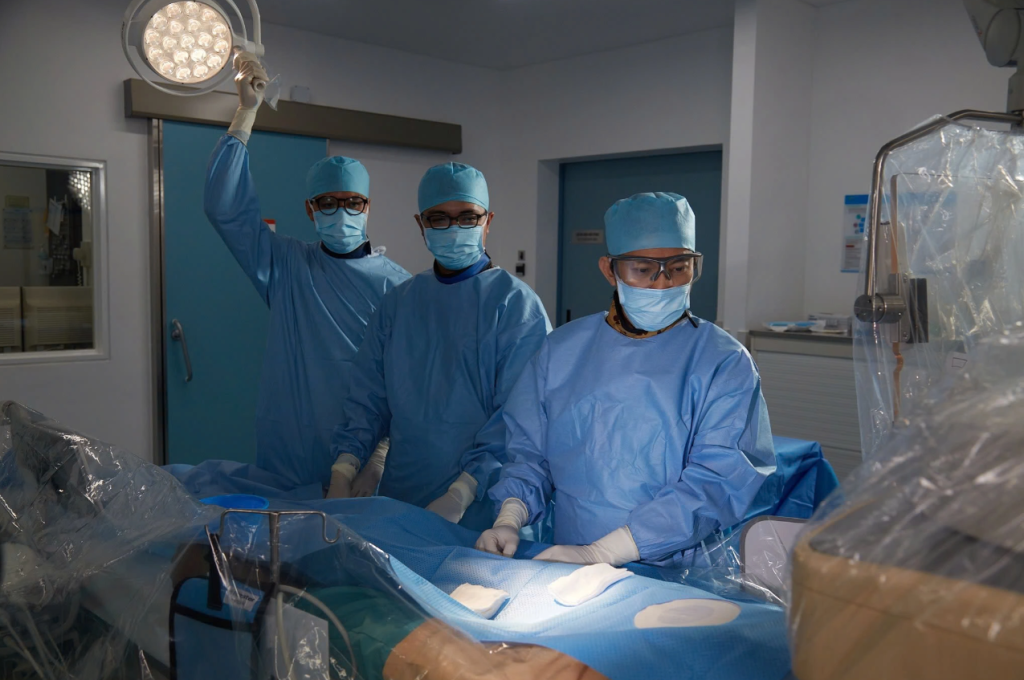Mrs V.N.H.N., 53 years old, was admitted to FV Hospital in a critical condition, suffering from both a stroke and severe pulmonary embolism – an exceptionally rare and complex medical case worldwide.
Mrs N.’s son, Mr S., shared that his mother had travelled from Quy Nhon to Ho Chi Minh City for treatment of stage 3B cervical cancer. She is currently undergoing anticoagulant therapy to address deep vein thrombosis in her leg before starting the official cancer treatment.

MRI imaging revealed a blood clot blocking the middle cerebral artery. Dr Nguyen Minh Duc, from the Neurosurgery and Endovascular Neurosurgery Department, promptly performed a thrombectomy to remove the clot from the brain. Using a digital subtraction angiography system, the blood vessels were clearly visualised, enabling the doctor to guide a small catheter through the blood vessels to the clot’s location and successfully extract it.
However, during and after the procedure, Mrs N.’s condition worsened – her blood pressure dropped, oxygen levels fell, and her vital signs became critical. The anaesthesiologist and resuscitation team suspected another health issue related to pulmonary embolism. An urgent echocardiogram and a CT scan of the lungs confirmed the presence of multiple blood clots in the lungs, with near-complete blockage of the two main branches of the pulmonary artery. The prognosis was extremely serious, with a high risk of mortality.

The patient was brought back to the Cathlab for an emergency thrombectomy by Ho Minh Tuan, MD, PhD, Head of Cardiology and Interventional Cardiology Department at FV Hospital. Using a catheter, Dr Tuan successfully removed the blood clot from the pulmonary artery.
“Cancer patients are more prone to developing blood clots in the legs, which can travel up to the right ventricle and often result in a pulmonary embolism. Additionally, the patient had a congenital heart defect, forming a hole between the atria, allowing the clot to directly reach the brain. To prevent recurrence, during the procedure, we also placed a filter, approximately 14-28 mm in size, in the inferior vena cava to prevent the clot from moving upwards,” Dr Tuan explained.

After successfully resolving the blood clots in the brain and lungs, the patient’s condition stabilised. Following eight days in intensive care, Mrs N. was discharged from the hospital.
“Initially, I planned to take my mother abroad for cancer treatment. However, after witnessing the doctors save her life, I decided to register for her cancer treatment here. The hospital’s quality of care is on par with international hospitals in the region,” shared Mrs N.’s family member.

For more information on stroke and pulmonary embolism treatment, please contact: 028 5411 3333.

 Vi
Vi 












